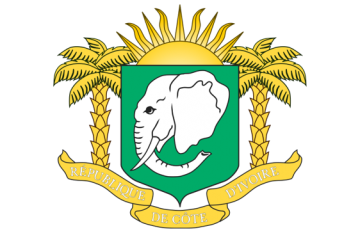Estimating the costs/benefits of REDD+ in Côte d’Ivoire Côte d’Ivoire
![]() AGRICULTURE
AGRICULTURE ![]() ENVIRONMENT
ENVIRONMENT ![]() FORESTRY
FORESTRY ![]() TRANSVERSAL
TRANSVERSAL


Services: Technical and economic advice, Diagnostics and feasibility studies
Countries: Côte d’Ivoire
Dates of intervention: 2013/08 - 2013/12
Amount executed: 49 712 €
Total amount of the service: 49 712 €
Main backer: Alliance mondiale contre le changement climatique - Client
Main beneficiary: Ministère de l’environnement, de la salubrité urbaine et du développement durable de Côte d’Ivoire
Support provider: SalvaTerra
Experts: Olivier BOUYER, Maden LE CROM
Certificate of satisfactory executionEtude coûts-bénéfices de la REDD+ en Côte d'Ivoire et mobilisation des acteurs des grandes filières agricoles et forestières
Context of the service
Côte d'Ivoire's forests are severely degraded. Since 1880, 90% of the land has been deforested, mainly because of slash-and-burn agriculture, but also because of the overexploitation of woody resources, all aggravated by the lack of land security.
Forest loss is a threat to the country, due to the loss of many goods and services provided by the forest, including soil fertility on which the Ivorian agricultural economy is based.
REDD+ can only be implemented effectively by convincing Ivorian decision-makers and economic actors of the low medium-term viability of the current economic model based on "mining" agro-export.
Thus, this study aims to: (i) Have a clear and concrete preliminary vision of what REDD+ could be for certain agricultural and forestry sectors of interest and (ii) Develop economic arguments to engage actors who are not very mobilized.
Services provided
For each of the eight sectors considered (cocoa, rubber, oil palm, cashew nuts, rice, yams, forestry and wood energy), (i) a reference scenario, which describes the "Business as Usual" evolution of the sector by 2030 and (ii) a REDD+ scenario with the implementation of specific actions.
The costs taken into account are the increase in operating expenses, the costs of supervision of producers, as well as the costs of land security and zoning of the territory. Benefits include gains in production, valuing emission reductions or carbon storage, and conserving environmental goods and services provided by forests.
Thus, it is estimated that the implementation of REDD+ would lead to economic benefits for the cocoa, rubber, yam and cashew sectors. For other streams, costs outweigh benefits and other REDD+ scenarios should be analysed.
Summary of the service
Support to the Government of Côte d'Ivoire in assessing the environmental, social and economic, market and non-market costs and benefits of entering REDD+ for the following sectors: palm oil, cocoa, rubber, cashew nuts, rainfed rice, yams, timber exports, fuelwood.